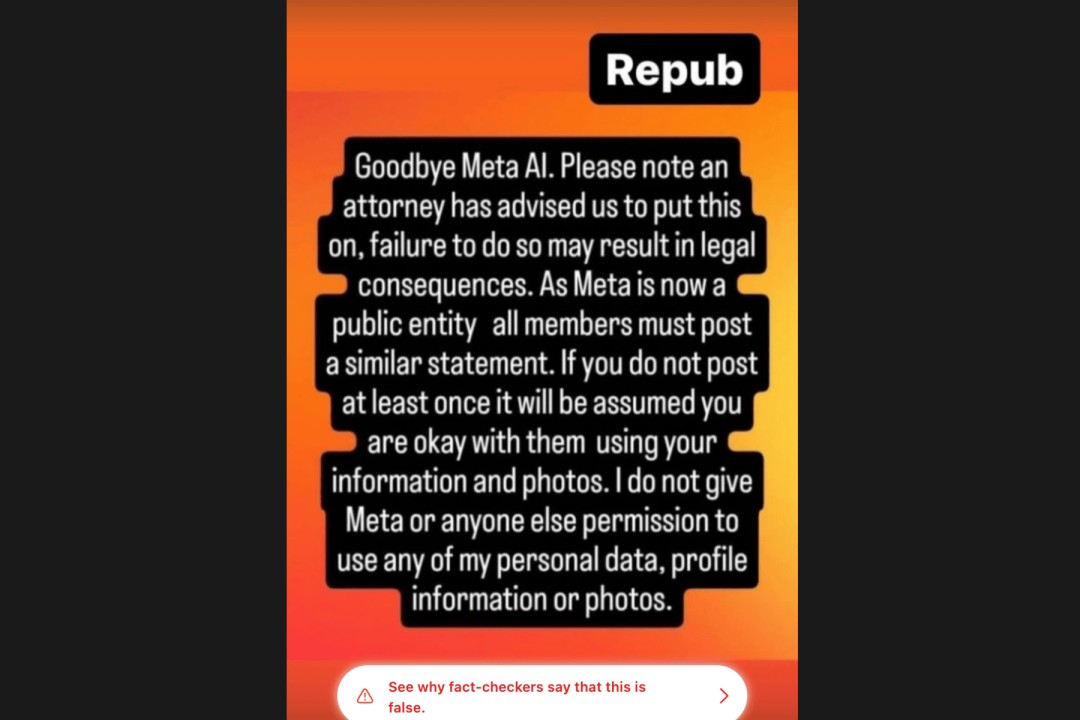
In the ever-evolving world of social media, trends come and go, often leaving users confused about what to believe. One such trend that has recently taken Instagram by storm is the “Goodbye Meta AI” post. This viral phenomenon has gained significant attention, with many users, including celebrities, participating in it. However, it’s crucial to understand what this trend is all about and why it’s being labeled as a hoax.
The Origin of the ‘Goodbye Meta AI’ Post
The “Goodbye Meta AI” trend emerged as a response to changes in Meta’s privacy policies. Meta, the parent company of Facebook and Instagram, announced updates allowing it to use user-generated content to train its AI chatbots. This announcement sparked privacy concerns among users, leading to the creation of the “Goodbye Meta AI” post. The post, a copied and pasted statement, claims to protect users’ data from being used by Meta’s AI systems.
What the Viral Message Claims
The viral message typically reads: “Goodbye Meta AI. Please note that I do not give Facebook or any entities associated with Facebook permission to use my pictures, information, or posts, both past and future.” Users are encouraged to share this message on their Instagram stories as a way to opt out of Meta’s data usage policies.
Why the ‘Goodbye Meta AI’ Post is a Hoax
Despite its widespread popularity, the “Goodbye Meta AI” post is a hoax. Legal experts and fact-checkers have confirmed that posting this statement does not provide any legal protection against Meta’s data policies. According to Time Magazine, the message is ineffective in altering Meta’s terms of service or privacy policies.
Celebrity Endorsement: Too Good to Be True
The involvement of celebrities like James McAvoy and Tom Brady, who shared the post, has further fueled its virality. However, their participation does not lend any legal credibility to the message. As BBC reports, even high-profile individuals are not exempt from falling for such hoaxes.
Meta’s Actual Privacy Policies
Understanding the real impact of Meta’s privacy policies is essential. Meta has clarified that it uses user-generated content, such as photos and text posts, to train its AI systems. Users concerned about data privacy can adjust their settings within Facebook and Instagram to limit data sharing. For more detailed guidance, users can refer to Snopes.
The Psychology Behind Viral Hoaxes
The rapid spread of the “Goodbye Meta AI” post highlights the psychology behind viral hoaxes. Fear and misinformation can quickly lead to mass participation, especially when privacy concerns are involved. Social media platforms serve as fertile ground for such trends, where misinformation can easily overshadow facts.
Why People Fall for Hoaxes
-
Trust in Celebrity Endorsements: People tend to trust information shared by celebrities, believing it to be credible.
-
Lack of Awareness: Many users are not aware of how digital privacy works, making them susceptible to misinformation.
-
Fear of Missing Out (FOMO): The urgency to protect personal data can lead users to participate without verifying the authenticity of the information.
How to Protect Your Data on Social Media
While the “Goodbye Meta AI” post is ineffective, there are legitimate ways to safeguard your data on social media platforms:
-
Review Privacy Settings: Regularly check and update your privacy settings on Facebook and Instagram.
-
Be Skeptical of Viral Trends: Before participating in viral trends, verify the information with credible sources.
-
Educate Yourself: Stay informed about digital privacy rights and practices.
Conclusion
The “Goodbye Meta AI” trend serves as a reminder of the importance of digital literacy in the age of social media. While it highlights genuine concerns about data privacy, participating in such hoaxes does not offer any real protection. Users must rely on verified information and take proactive measures to secure their data.
Frequently Asked Questions (FAQ)
Is the ‘Goodbye Meta AI’ post legally binding?
No, the post is not legally binding and does not prevent Meta from using your data. For more information, refer to Time Magazine.
Can celebrities influence the effectiveness of such posts?
Celebrity participation does not enhance the legal standing of such posts, as highlighted by BBC.
How can I truly protect my data on social media?
To protect your data, adjust your privacy settings and stay informed about digital privacy practices. Refer to Snopes for detailed guidance.
What should I do if I’ve shared the ‘Goodbye Meta AI’ post?
If you’ve shared the post, it’s advisable to inform your followers about its ineffectiveness and encourage them to verify information before sharing.
By understanding the nuances of social media trends and their implications, users can make informed decisions and protect their digital presence effectively.






